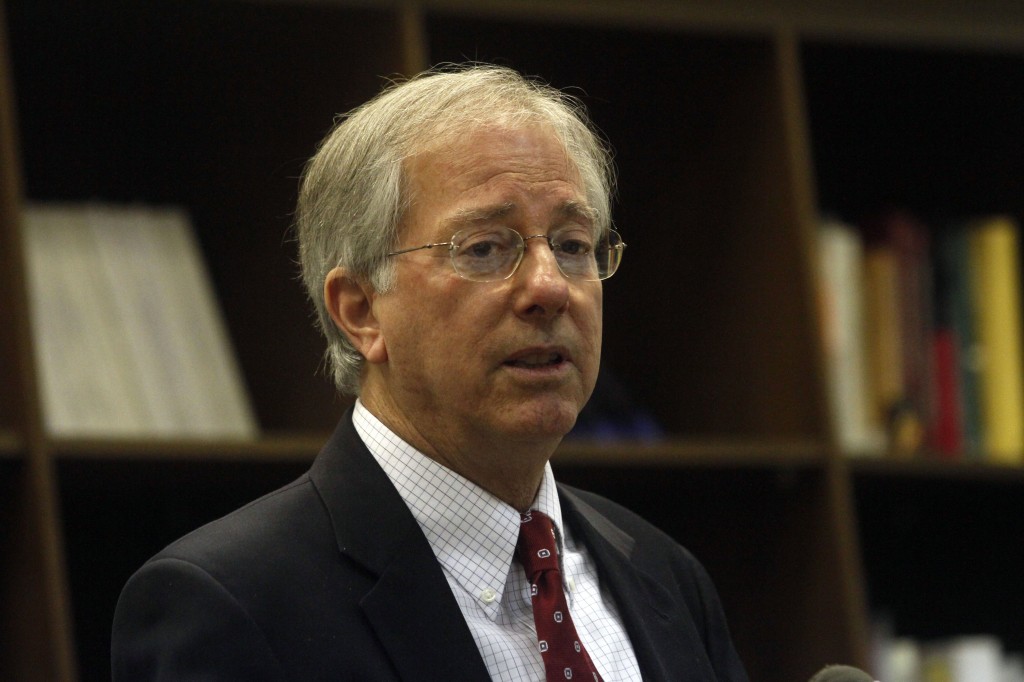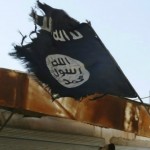by Paul Pillar
Last week I commented on the unhelpful habit of throwing everything Islamist, no matter how extreme or moderate, into a single conceptual bucket and writing off the whole lot as incorrigible adversaries. That habit entails a gross misunderstanding of events and conflicts in the Middle East, and has the more specific harm of aiding extreme groups at the expense of moderate ones. Shortly afterward Dennis Ross of the Washington Institute for Near East Policy presented a piece titled “Islamists Are Not Our Friends,” which illustrates almost in caricatured form some of the misleading attributes of the single-bucket attitude that I was discussing.
Ross’s article probably is not grounded in Islamophobia, although it partly appeals to such sentiment. The piece ostensibly is about how “a fundamental division between Islamists and non-Islamists” is a “new fault line in the Middle East” that provides “a real opportunity for America” and ought to guide U.S. policy toward the region. In fact it is a contrived effort to draw that line—however squiggly it needs to be—to place what Ross wants us to consider bad guys on one side of the line and good guys on the other side. The reasons for that division do not necessarily have much, if anything, to do with Islamist orientation. Thus anyone who has been unfriendly to Hamas or to its more peaceful ideological confreres in the Muslim Brotherhood are placed on the good side of the line, Iran and those doing business with it are put on the bad side, and so forth.
Ross tries to portray something more orderly by asserting that “what the Islamists all have in common is that they subordinate national identities to an Islamic identity” and that the problem with the Egyptian Muslim Brotherhood was that “it was Islamist before it was Egyptian.” What, exactly, does that mean, with particular reference to the short, unhappy presidency of Mohamed Morsi? There were several reasons that presidency was both unhappy and short, but trying to push an Islamist-more-than-Egyptian agenda was not one of them. (And never mind that Ross is risking going places he surely would not want to go by making accusations of religious identification trumping national loyalty on matters relevant to U.S. policy toward the Middle East.) It would make at least as much sense to say that the current president, Abdel Fattah el-Sisi, was more authoritarian and more in tune with fellow military strongmen than he was Egyptian.
Where Ross’s schema completely breaks down is with some of the biggest and most contorted squiggles in the line he has drawn. He places Saudi Arabia in the “non-Islamist” camp because it has supported el-Sisi in his bashing of the Brotherhood and wasn’t especially supportive of Hamas when Israel was bashing the Gaza Strip. Saudi Arabia—where the head of state has the title Custodian of the Two Holy Mosques, the country’s constitution is the Koran, and thieves have their hands amputated—is “non-Islamist”? Remarkable. Conversely, the Assad regime in Syria, which is one of the most secular regimes in the region notwithstanding the sectarian lines of its base of support, is pointedly excluded from Ross’s “non-Islamist” side of the line because of, he says, Syrian dependence on Iran and Hezbollah. Of course, any such alliances refute the whole idea of a “fundamental division” in the region between Islamists and non-Islamists, but Ross does not seem to notice.
Getting past such tendentious classification schemes, we ought to ask whether there is a more valid basis on which we ought to be concerned about states or influential political movements defining themselves in religious terms. If we are to be not merely Islamophobes but true children of the Enlightenment, our concern ought to be with any attempt, regardless of the particular creed involved, to impose the dogma of revealed religion on public affairs, especially in ways that affect the lives and liberties of those with different beliefs.
Such attempts by Christians, as far as the Middle East is concerned, are to be found these days mainly among dispensationalists in America rather in the dwindling and largely marginalized Christian communities in the Middle East itself. In a far more strongly situated community, that of Jewish Israelis, the imposition of religious belief on public affairs in ways that affect the lives and liberties of others is quite apparent. Indeed, the demographic, political, and societal trends during Israel’s 66-year history can be described in large part in terms of an increasingly militant right-wing nationalism in which religious dogma and zealotry have come to play major roles. Self-definition as a Jewish state has been erected as a seemingly all-important basis for relating to Arab neighbors, religion is in effect the basis for different classes of citizenship, and religious zeal is a major driver of the Israeli colonization of conquered territory, which sustains perpetual conflict with, and subjugation of, the Palestinian Arabs.
When religious zealotry involves bloodshed, especially large-scale bloodshed, is when we when ought to be most concerned with its infusion into public affairs. The capacity for zealotry and large-scale application of violence to combine has increased in Israel with the steady increase of religiosity in the Israel Defense Forces (IDF) and its officer corps. A prominent exemplar of this trend is Colonel Ofer Winter, commander of the IDF’s Gilati Brigade, who has received attention for the heavily religious content of his instructions to his troops. With his brigade poised near the Gaza Strip before the most recent round of destruction there, Winter said in a letter to his troops that he looked forward to a ground invasion so that he could be in the vanguard of a fight against “the terrorist enemy that dares to curse, blaspheme and scorn the God of Israel.” After Winter’s brigade did get to join the fight, he said that a mysterious “cloud” appeared and provided cover for his forces, an event he attributed to divine intervention. Quoting from Deuteronomy, he said, “It really was a fulfillment of the verse ‘For the Lord your God is the one who goes with you to give you victory.’”
Winter’s brigade was involved in what could be described as a culmination of the synthesis of zealotry and bloodshed. When an Israeli soldier was missing and suspected (incorrectly, as it later turned out) to have been captured alive by Hamas in a battle at Rafah, Winter executed the “Hannibal” directive, an Israeli protocol according to which as much violence as necessary is used to avoid having any Israeli become a prisoner, no matter how many civilians or others are killed and no matter that the captured Israeli soldier himself is killed. Over the next several hours a relentless barrage of artillery and airstrikes reduced this area of Rafah to rubble, while Israeli forces surrounded the area so that no one could escape it alive. This one Israeli operation killed 190 Palestinians, including 55 children. There may have been other implementations of the Hannibal directive in the recent Israeli offensive in Gaza; this one is confirmed because Winter himself later spoke openly and proudly about it. Although some secular-minded private citizens in Israel have objected to the heavily religious content of Winter’s leadership, officially there does not appear to be anything but approval for anything he has said or done. He is an exemplar, not a rogue.
In short, an operation officially sanctioned and led in the name of a national god was conducted to slaughter scores of innocents as well as one of the operators’ own countrymen. We ought to think carefully about this incident and about what Colonel Winter represents when we decide how to conceive of fault lines in the Middle East, what it means to insert religion into politics or to be a religious zealot, exactly what it is we fear or ought to fear about religiosity in public affairs, and which players in the Middle East have most in common with, or in conflict with, our own—Enlightment-infused, one hopes—values.
This article was first published by the National Interest and was reprinted here with permission.






All religion is terrifying. You start off with ten commandments, where everything is simple, clear and logical. Then wise men and scholars examine ever word in minute detail, interpreting the “Word of God” in ways that best suit their needs of the moment. “Thou shalt do no murder” no longer means “always, in any circumstances” but can be suitably reinterpreted when there is killing to be done. When it suits us we will beat our swords into plowshares, but the reverse applies when we want to smite the enemies of the Lord. Pure hypocrisy!
Dennis Ross. Another zealot in the long line of who write as they bow down to their version of excuses for the other sycophants he represents. Since when is murder O.K. with any “GOD”? Allowing these religious zealots to carry guns and command others, are no different than the ISIS terrorists or what ever name they are called at the moment. What exactly is the difference between the two? There is none, but they wont say that, yet, isn’t the old saying of an “eye for an eye” equally equitable for both sides when each murder? The idea that one is a good guy, while the other is the bad guy, depends on which side of the fence one stands. So, when one side says the other is a terrorist because of its behavior, then imitates that same or worse behavior, then there is no difference betqween the two, they are one and the same, except they may try to outdo the other, which is where this whole problem has evolved.
This is why I am convinced that organized religion is THE absolute worst of all human inventions. IF, and to me this is a very huge if, there is any sort of god, may that god protect me from her/his/its fanatics.